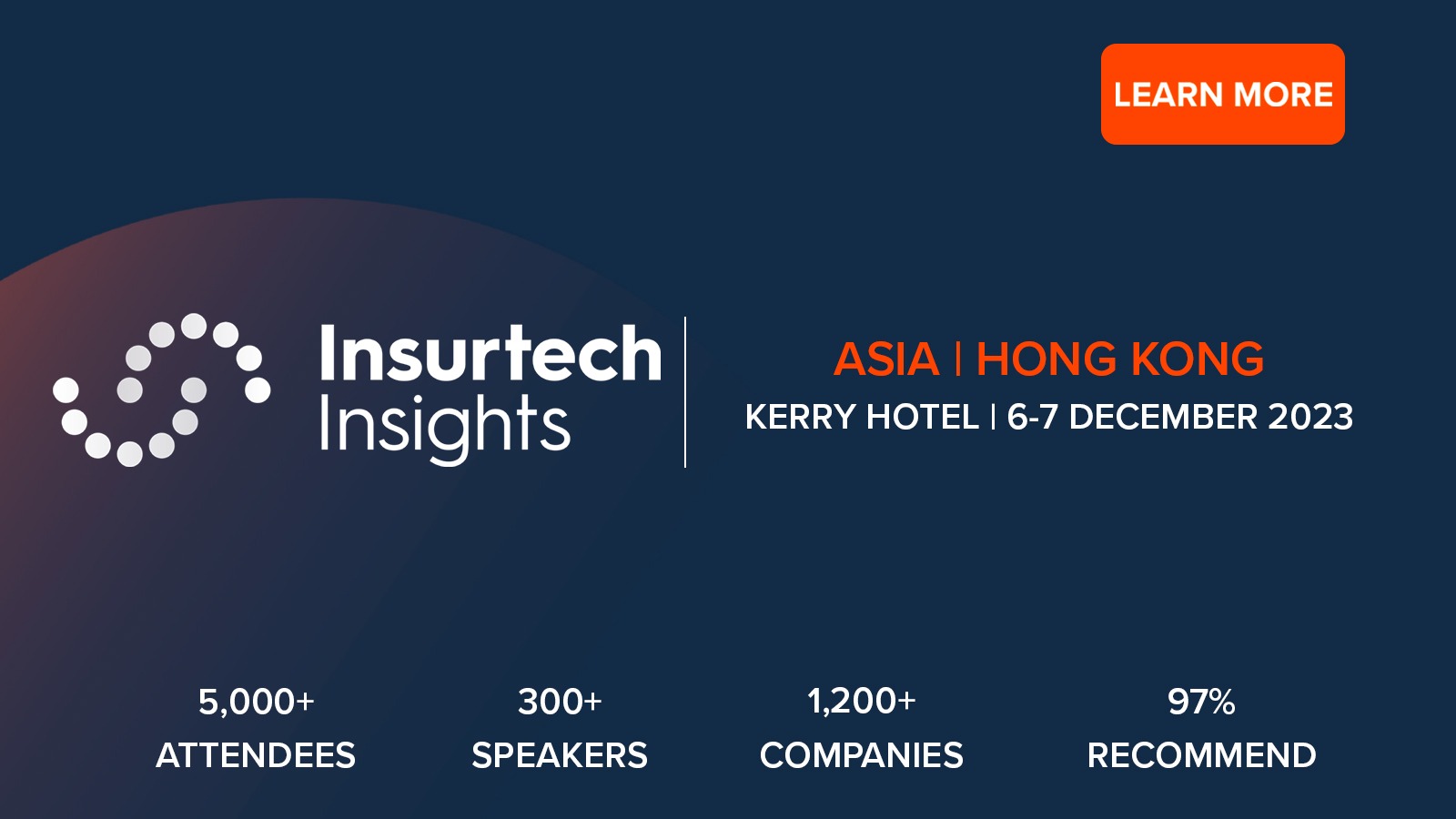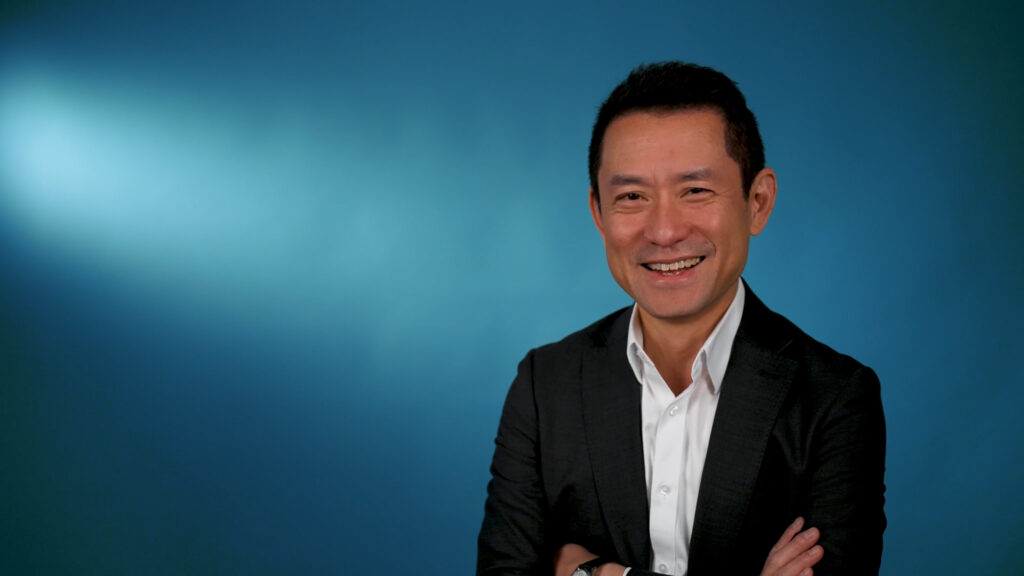There isn’t much Ericson Chan doesn’t know about the latest innovations available in the insurance industry. The former CEO of Ping An Technology helped to transform the Group’s business model and online ecosystems through digital services – including a range of fintech products and online platforms.
Between 1998 and 2016, he held several technology and operations leadership roles at Standard Chartered Bank in Hong Kong, Shanghai and Singapore, including chief information officer for North Asia, head of Corporate & Investment Banking Operations in China and global head of Consumer Banking Technology. He also spent six years immersed in HealthTech in the U.S.
Chan joined Zurich as the Group Chief Information and Digital Officer and became a member of the Executive Committee in October 2020. In May 2023, he picked the 13 winners of the most recent Zurich Innovation Championship, selected from over 3,500 applicants, in a move that will nurture both new talent and technologies in the insurance space. We caught up with him to find out more.
You spent extensive time in the financial industry and also in technology, but then you moved over to Zurich. So how and why did that move come about?
I moved to Zurich two and a half years ago. Switzerland has always been a very interesting, intriguing place. Prior to this, I spent a decade each in the USA and in China – so I have a wide range of experience within different environments. Culturally in Switzerland, there is a strong sense of precision, reliability and innovation, which were all aspects that appealed to me. Because it’s a country that leads in a number of key industries, this has definitely driven success within the Fintech and Insurtech marketplaces.
I saw Europe as the next frontier for me, professionally and personally. Zurich is also a company that has great vision when it comes to embarking on a journey towards the future, and it’s very focused on customer needs and experiences. Their solid, international brand is incredibly strong, so when the opportunity to join the leadership team opened up, I was ready to make that move.
Has moving from the financial/banking and tech space, into the insurance industry been a departure from your usual experiences?
I would not call it a departure as such because even before I was with Zurich, I worked in insurance, focusing on how to reuse digital means to engage customers better. But this is a bigger international stage. I think insurance offers even more opportunities to engage the customer because we provide a wide range of P&C and Life products and services.
If we look into the exact needs of our customers, we need to ask ourselves: how can we better address them? How can we provide better protection beyond financial means? And then, scaling that, how can we help them to improve their quality of life?
When you look at it through this lens, it’s similar to banking, but insurance requires you to go one step further to be able to really address customer needs.
You joined Zurich just as the world was going into lockdown, at the start of the pandemic. As the Group Chief Information & Digital Officer, that must have presented quite a few challenges. Were there any moments that stood out for you?
The unexpected part was how long that period lasted. No one realised it would go on for so long. And of course, it was difficult in many different ways. I think my experience wasn’t unique because everybody was going through the same challenges during that time. On a personal level, it was good, because I joined just before the lockdowns began, which meant I was able to meet with my team in person twice before we went fully remote. I consider that a blessing.
The technical challenges were the limited networking opportunities. We didn’t get to have face-to-face interaction. But, on the flipside, I was able to see exactly how the technical teams handled themselves in a crisis. In days, they set up the environment to make sure we had more than 50,000 employees all working from home. This period not only showed me very early on how capable my team was – but, more importantly, I was able to witness the can-do attitude of the tech team at Zurich. From that perspective, it was a fantastic experience.
You spent many years working in Asia as the CEO of Ping An Technology – and also as the CIO of Standard Chartered Bank. What’s your perspective on the developments of insurtech in that region?
Asia has a very large and diverse population with increasing digital penetration – it is a vast untapped market for insurtech companies. The region itself has a huge emerging middle class. This, combined with the rising disposable income, and evolving consumer preferences creates very, very favourable conditions for innovative insurance solutions.
Additionally, I would say that governments in Asia recognise the potential of insurtech and are willing to take steps to facilitate growth.
While they do regulate, they also encourage setting up regulatory sandboxes, streamlined licensing processes, and even encouraging markets such as virtual insurers by issuing digital-only insurer licences. These policies support and encourage innovations and also attract investment.
Consumers have a very high mobile adoption rate, and, for some, the tech has even skipped a generation. So instead of going from a desktop to a mobile experience, they go straight to mobile without even touching a desktop.
Tech companies capitalise on this by adopting a mobile-first or maybe even a mobile-only approach. This has led to the rise of digital platforms to provide convenient access to products and a simple claims process for tech-ready consumers.
Interested in learning more about insurtech in Asia? Join us at ITI Asia, Hong Kong 2023

What are the biggest marketplace challenges you are facing as a Group Chief Information & Digital Officer?
I would prefer to call them opportunities rather than challenges, and I see plenty of opportunities ahead of us. Zurich is a very well-established organisation with a 150-year history. We operate internationally, so we have a large global footprint and there are many solid capabilities already built across our network.
When it comes to digitisation of processes, how we digitally engage our customers and how we use our data, we have a lot of great tools built up already. Currently, the biggest question we’re facing is how to leverage this strong network of existing digital capabilities as a group that is spread across the globe.
We’re also keen to create further opportunities by encouraging, reusing, and then driving more value from the existing digital assets that we already have. This is the exciting part. It’s not the lack of digital capability or assets, but how we can deliver more, based on what we already have.
Our solution has been to create more exchanges, and, with that, increase adoption across the network. That is a huge opportunity.
To add to all that, technology moves with incredible speed. We need to ask ourselves: how can we create more capabilities in-house? Because these days technology is a differentiating factor. It’s a competitive advantage.
Insurtech is moving fast. But that is underpinned by data analytics, AI, and cloud readiness. Many of these do need to have a digital capability. Technical skills and knowledge in-house are some of the biggest hurdles.
What strategies do you use to address those challenges? Is it a simple case of hiring new talent? Or is that a challenge in itself?
We might be hearing less about the “War on Talent”, but I don’t think hiring good people is any easier than before. The demand is still very high. Every organisation is still in the midst of digital transformation and tech talent is still in high demand. And it’s not only about recruiting, but also about training talent – both new and existing talent. We need to have the right learning opportunities for our current staff to give them the opportunity to upskill and reskill.
To address this, we have established a number of platforms that enable staff to access training in areas they are interested in. One of those platforms is My70Percent, which is almost like an internal marketplace, through which employees are empowered to learn new skills on the job. So, we’ve created a mechanism for ourselves that operates globally, to boost our own talent.
What are your predictions for the current marketplace? There has been some positivity recently. Are we seeing a correction and the journey back to normality?
No one really knows at this point. But Zurich did have a very strong start in 2023. This is the third financial cycle under our Group CEO’s leadership.
We have a very clear strategy with a big focus on becoming customer-led, and innovation is key to get to this point. It’s hard to see how the insurtech market is going to develop over the next few months. I think a reality check is required. Companies need to consider the value proposition of each of their products. They need to be realistic and focus on the things that generate value.
Zurich recently selected the winners of the latest edition of its global startup programme, out of more than 3,500 applicants.
It must have been challenging to select the final candidates from that.
The demand was huge. In the last five years, the Zurich Innovation Championship has grown to become the largest open innovation contest for startups in the insurance industry, so that tells you something about the startup insurtech market.
It’s unique, too, because Zurich’s global leadership team, including its executive committee members, are personally supporting and sponsoring the programme. The startups get to interact with them, and receive their guidance and coaching, which is invaluable. It’s also a lot of fun because it feels more like a mentoring experience than an innovation lab. That’s possibly the secret to its success.
When you look at digital transformation in the wider insurance market, what aspects require more attention, in your opinion?
We definitely need to focus more on how we can inter-operate. We need to make sure we can connect with everyone more easily, because partnership will be key moving forward. We also need to improve continuously in the way we leverage data. Insurance companies tend to do that well already, but there are more opportunities to be tapped into. And then, of course, we need to automate and digitise. All these things enable us to provide a better customer experience.
The insurance industry has been criticised for being slow to adopt the latest innovations, but actually, it is catching up very fast now, comparatively. Zurich has prioritised this and now we have very strong technical skills and offerings.
The customer is also at the centre of our decision-making, and we truly believe that focusing on customer needs is critical. We aim to engage with our customers in a more meaningful way – beyond a mere transaction – and to ultimately increase their level of loyalty towards Zurich. I call it going from a ‘sales to service’ to a ‘service to sales’ approach. You first serve the customer and only sell a product in a second step.
What are the key three trends that will impact the insurance industry over the next five years, in your opinion?
I see two trends that are closely linked and one additional trend that cuts across them all.
Firstly, insurance 2.0., as I call it, will have a huge impact. By this I mean a shift towards the insurer going to where the customer is rather than the other way around. Essentially, embedded insurance – getting insurance at the point of purchase of a consumer product – will be key in shaping the marketplace of the future. Services will be seamlessly integrated into our customers’ lifestyle and will be ubiquitous. Embedded services have been available for a while when purchasing electronic products and appliances, but now we are seeing an extension of the embedded market move into other sectors such as travel and events.
Secondly, risk prevention is transforming products and services and ringing in the era of insurance 3.0. By this I mean that insurance is increasingly going beyond financial coverage and moving towards addressing risks in advance. This is being accelerated in many areas – and is especially visible in the automotive industry and in health and wellbeing, where customer data can be used to reduce premiums and encourage healthier lifestyles and behaviours. Addressing potential risk in commercial buildings, in advance, is another use case that is gaining ground. And of course, we are all aware of how helpful it’s been in the cyber, fire and flood risk categories.
Thirdly and finally, from a technical point of view, there’s no way around AI. It’s not just about Large Language Models or Generative AI – this is only one of various branches of AI. AI is bringing so much added value to the customer by increasing efficiency and creating frictionless processes. Solutions that deploy AI help our underwriters give more time to our claim inspectors, and lighten the workload. AI is a transformative movement across the board.
Interview by Joanna England

Joanna England is an award-winning journalist and the Editor-in-Chief for Insurtech Insights. She has worked for 25 years in both the consumer and business space, and also spent 15 years in the Middle East, on national newspapers as well as leading events and lifestyle publications. Prior to Insurtech Insights, Joanna was the Editor-in-Chief for Fintech Magazine and Insurtech Digital. She was also listed by MPVR as one of the Top 30 journalist in Fintech and Insurtech in 2023.









